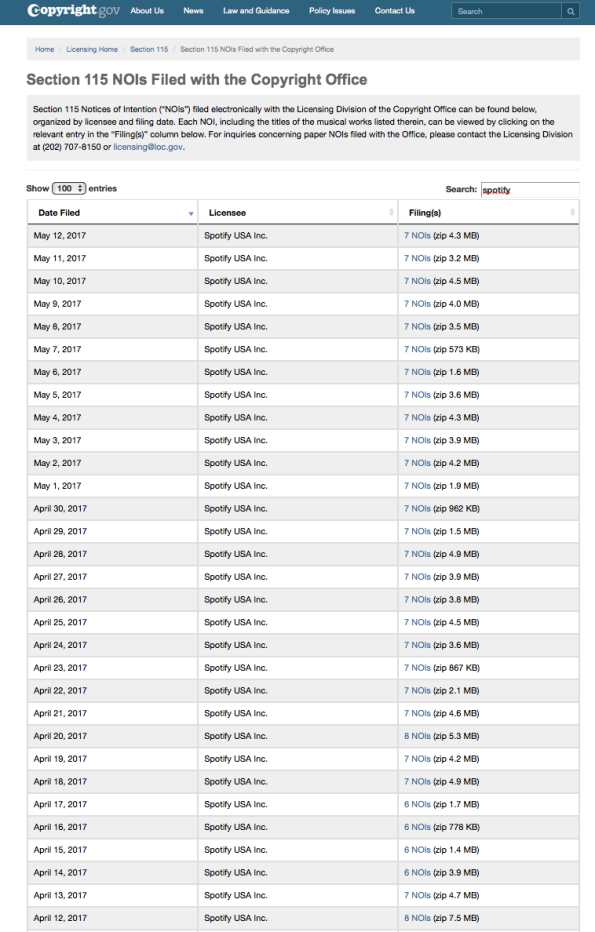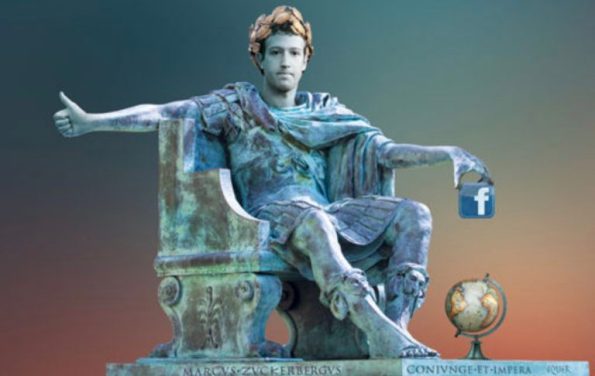Spotify Songwriter Settlement Points Finger At Facebook [Chris Castle]
While Spotify gets at least one gold star for settling the songwriter/publisher class action lawsuit brought by Melissa Ferrick and David Lowery for $43.4 million, an even bigger online giant is ignoring its obligations to creators all together…
_____________________________
Guest post by Chris Castle of Music Technology Policy
Robert Levine is reporting in Billboard that the combined Lowery/Ferrick potential class actions have reached a $43.4 million settlement with Spotify (read the latest court document on the settlement here from Pacer). The settlement still requires identifying a class which the documents define (at p. 3) as:
All persons or entities who own copyrights in one or more musical compositions (a) for which a certificate of registration has been issued or applied for on or before the Preliminary Approval Date; and (b) that was made available by Spotify for interactive streaming and/or limited downloads during the Class Period (December 28, 2012 through the Preliminary Approval Date) without a license. (my emphasis)
This definition leaves out anyone who hasn’t filed a copyright registration of their song, which is likely to include many ex-US songwriters who are not required to register in order to enjoy copyright protection, and indeed many US writers who haven’t gotten around to registering their works as of what appears to be a yet-to-be-defined “Preliminary Approval Date.” So the clock is ticking for those who have yet to play the registration game.
It should also not be lost on anyone that the reference to the class certification includes compositions exploited by Spotify “without a license”. This clause should more properly state “without a license issued by the copyright owner or for which a license has been served on the copyright owner directly and not served on the Copyright Office pursuant to 17 USC Sec. 115(b)(2).” Why?
The proposed settlement’s registration requirement as drafted may also explain why Spotify has taken a sudden interest in serving “address unknown” NOIs on the Copyright Office in order to claim to have a faux statutory license. Spotify may be trying to argue that anything in their mass NOI filing is not registered and that by filing the mass NOI they have a “license” under the Copyright Act. It may be well to pay closer attention to the definition of “license” in the class settlement. (See “Loopholeapalooza! Spotify Files 247,112 Address Unknown NOIs”)

Spotify’s 72 NOI filings to date, each with multiple spreadsheets with hundreds of thousands of songs
It also excludes the publishers who signed up to the NMPA settlement (which I think was a $30 million settlement depending on how you count it), those who have reached their own settlements, and a few other categories that should not be controversial. If memory serves, the NMPA settlement was thought to cover some 90% of the songs at issue.
It is well to remember that Spotify started out with licenses for a bunch of material and just fell down on their licensing rules in a rather expensive way for a company with $1 billion of debt.
Compare Spotify to Facebook. Facebook has no licenses. None. Zero. Zilch. They know they have no licenses and they don’t seem to be in much of a hurry to solve this problem. For all of Spotify’s problems, Facebook is not Spotify. Facebook is a royalty deadbeat.
What the Spotify cases should tell Facebook is that Facebook should not expect to get a pass for their bad behavior. Facebook should expect to write a very large check for the past and a very large check for the future.
How much? Facebook’s Sheryl Sandberg has said that $500,000,000 is not a material sum for Facebook, so let’s start there. That’s not a crazy number, either–Facebook has about 20 to 40 times the number of users than does Spotify (depending on which Spotify number you believe), so if anything $500,000,000 is cheap. That payment should just about cover the past and then we can talk about the go forward.
What is different for Facebook than it was for YouTube or even Spotify is that independent artists and songwriters have found their collective voice and they are not scared by Emperor Zuck and his billions.
